Navy Gay Death Cruise
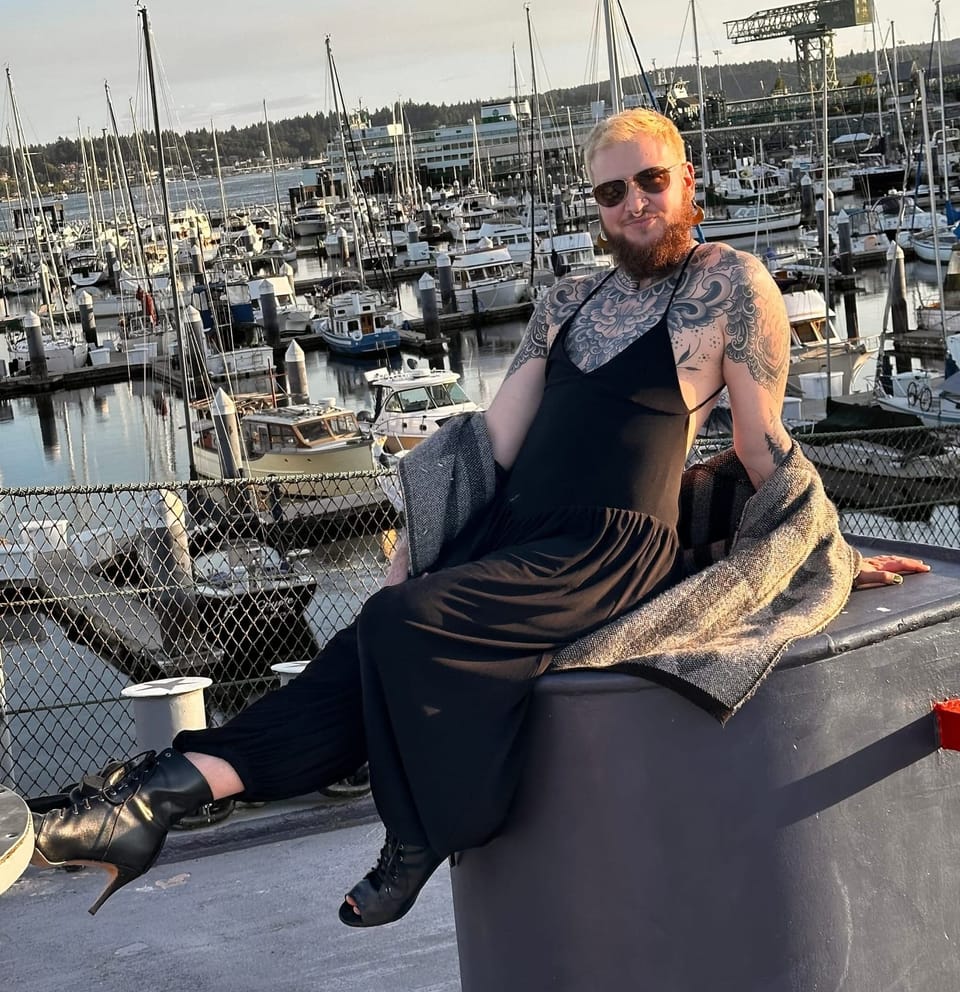
I DON’T READ news.
I originally stopped in 2016, when a psychedelic-assisted therapist suggested that I pause, for two weeks, before I did ayahuasca for the first time. As a journalist, I had the kind of job then that had once contractually required me to tweet daily, a clause I’d fought kicking and screaming in negotiations—because even in the least grounded, most inauthentic iteration of my life, social media felt like poison to me.

My internet use never returned to previous levels. In 2018, I started having the Sunday New York Times delivered on paper, and for a couple of years, I took an entire week to read one edition’s worth of information. But I eventually canceled my subscription. While I still fact-check what I write, I otherwise ingest my news like a remote villager who has access to neither wireless nor cell connection, though I have both: I learn what I need to know from people I encounter.
In April, my work-husband, Seth, visited me from Tokyo, and opted to skip news-scrolling along with me. After just a few days, he marveled at how much better he felt.
“Oh, did I lose my health care?” I asked my friends Wyete and Sky over drinks early this month, when I gleaned they were talking about Medicaid changes. I was aware of the bill and that it was being voted on; I’d even heard from another friend, whom I’d seen earlier in the week, that it had passed, and that the provision excluding trans health care from coverage had been taken out (my system/the system of millennia works!).
My cocktail friends didn’t know exactly how I was going to be affected or when. And I’ll tell you what: According to a quick fact-check, an expert at the UC Berkeley School of Public Health didn’t know, either, even several weeks later. Still, hundreds of new articles had been published about it in the interim.

Even I have known for several months now, though, that Trump ordered the U.S. military to start criminally discriminating against trans people in a presidential action. Have you read it? I just did. It’s somehow uglier than I would have thought.
Consistent with the military mission and longstanding DoD policy, expressing a false “gender identity” divergent from an individual’s sex cannot satisfy the rigorous standards necessary for military service. Beyond the hormonal and surgical medical interventions involved, adoption of a gender identity inconsistent with an individual’s sex conflicts with a soldier’s commitment to an honorable, truthful, and disciplined lifestyle, even in one’s personal life. A man’s assertion that he is a woman, and his requirement that others honor this falsehood, is not consistent with the humility and selflessness required of a service member.
While this is far from my only issue with the American military, it is an extremely pressing and salient one. And yet.
The weekend before last, I went to a Pride event on an American warship.
MY LOCAL PRIDE organization exists in a woke-ass county, on the woke West Coast. For some reason, it had decided that a retired Naval destroyer was a good place to have its Pride kickoff party (since big-city Prides dominate June, some smaller cities hold theirs later). I had decided, for a very specific reason, that I should go, and that reason is: Tequila. I was having a stiff margarita and a good time when Sky told me and Wyete about the event over the aforementioned drinks. I insisted that he pull out his phone and buy tickets on the spot.
I was already reconsidering my buzzed enthusiasm for the idea by the morning after. Fuck the military’s rejecting and ejecting trans people. Even if I’d felt some drunken poetic justice in the contradiction of our partying on a warship the night before, fuck war. I didn’t yet know if this warship had fired real rounds on real people, but I knew from experience that it had likely at least facilitated murder.
In 2017, I accepted an (unusual, for me) assignment to go to Al Dhafra, a United States Air Force base in the United Arab Emirates. While I had more than a decade of covering war by the time Allure magazine (very unusually) called me to propose the story, my specialty was war’s fallout: refugees, and more refugees. Displaced people and primary and secondary PTSD.
This assignment was to profile servicewomen who were perpetrating it.
At the time, Al Dhafra was dropping American bombs on suspected ISIS targets in Iraq and Syria almost every. single. day. I didn’t know that until I arrived. But most people didn’t—that was a product not of my news aversion, but of general American disconnect from “our” military’s patently unaccountable execution of capitalist empire.
During the assignment, I flew with an aerial refueling tanker carrying 100,000 pounds of jet fuel into Iraqi airspace. In our giant plane, en route to helping power another plane, which was almost certainly killing people, the vibe on board was decidedly chill. The story’s French photographer sat next to me while we ate crappy food from the base’s dining facility that we’d loaded into takeout containers. The flight’s female engineer was wildly cheerful, donning a Top Gun-style flight suit expressly for our benefit: She explained that they’d recently been phased out for two-pieces.
When it came time to unleash a massive load of fuel into the other plane, mid-flight, I climbed down into the boom pod at the back of our tanker. It was a tight, windowed compartment, where a young airman basically operated a joystick to extend a long, mechanical arm ending in a connector like a horse’s penis. He stuck it in, and then, after some time, he pulled it out. And we turned around and went back to base.
It never stops being strange (read: devastating) for me to consider how many of the features I wrote—how most of the features I wrote—are stories I couldn’t report now. “Sir,” one of the airport attendants in Dubai called to me, trying to redirect me from walking into the women’s room with my hair short. “Oh! Sorry, ma’am,” he said as I got closer.
“Sir,” almost everyone who uses honorifics calls me now, eight years later. Because, despite my cross-dressing, they recognize me as a man. “Ma’am,” they occasionally call me instead, but only liberals who think I’m a trans woman.

Around the time that I was in the Emirates, authorities there detained foreign trans women and queer cis men on multiple occasions, holding or sentencing them for extended periods. Even now, “Sentences,” says the Human Dignity Trust, “include a maximum penalty of death.” Trans and gender nonconforming people “are regularly arrested on the basis of their dress and behaviour.”
In the photograph taken of us journalists before we boarded the refueling tanker (below), I am mere months from coming out. For that story, several weeks of traveling, reporting, recovering, writing, and editing, I earned $9,000. Net. That was considerably lower than my usual fee for the time. But it’s higher than my total earnings last year of $8,421.63, gross.
By the time Allure was ready to prepare that story for publication, the female executive editor who’d assigned me the feature had left the magazine. I’d started transitioning—personally, socially, medically. The editor who took over was an older cis gay man to whom I’d never spoken but who seemed friendly enough, even if he asked inappropriate questions about my trans body parts. After we sent the final version of the story to the printers, he started calling me late in his time zone. He told me that he watched porn with trans men in it, who “look just like normal guys—until they take their pants off!” He sent me an email about how GQ, for whom I was also working on a story, used to be a good magazine to jerk off to. And that, after ten years of completing stories for publication, was my first experience completing one as an out trans person.
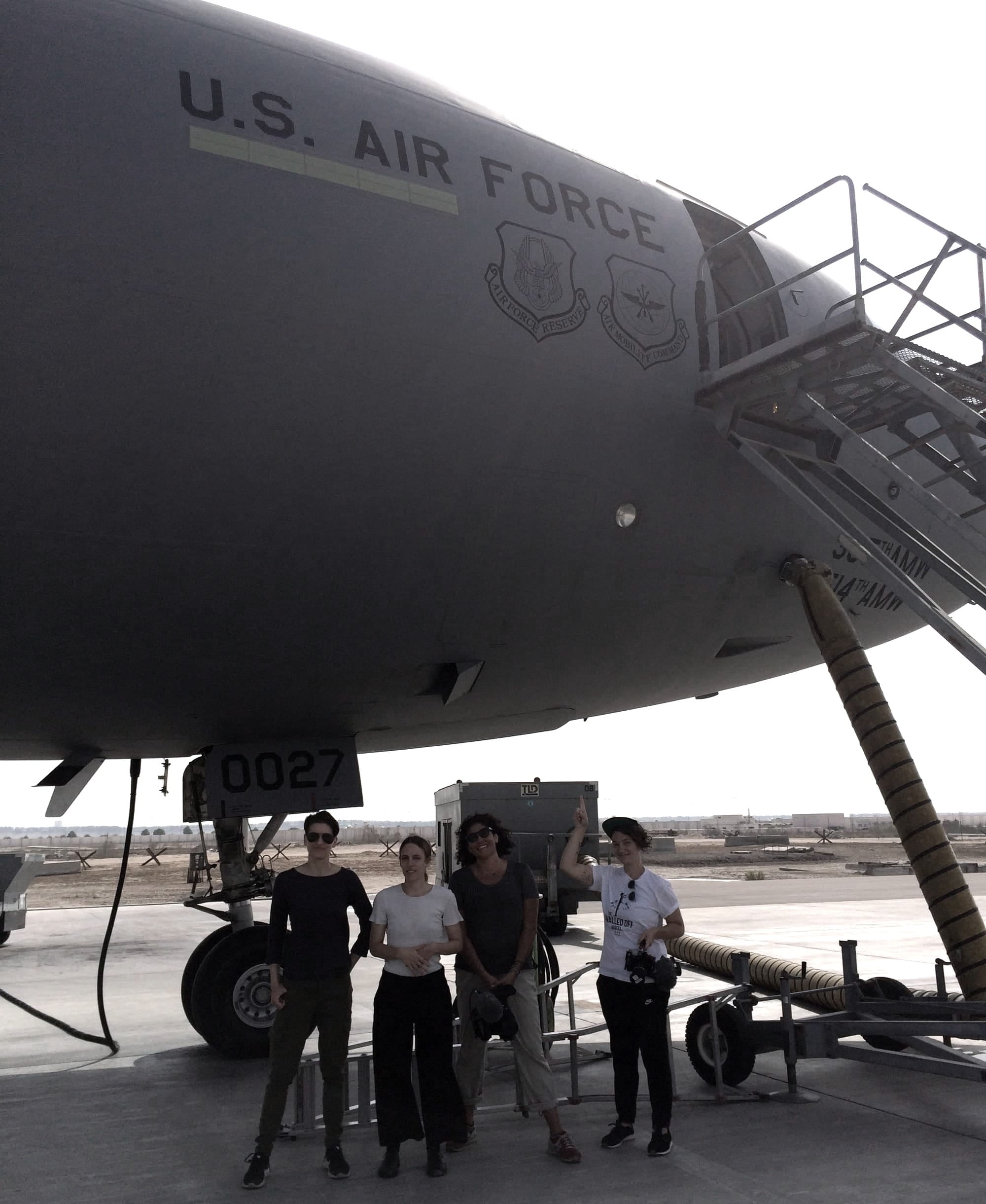
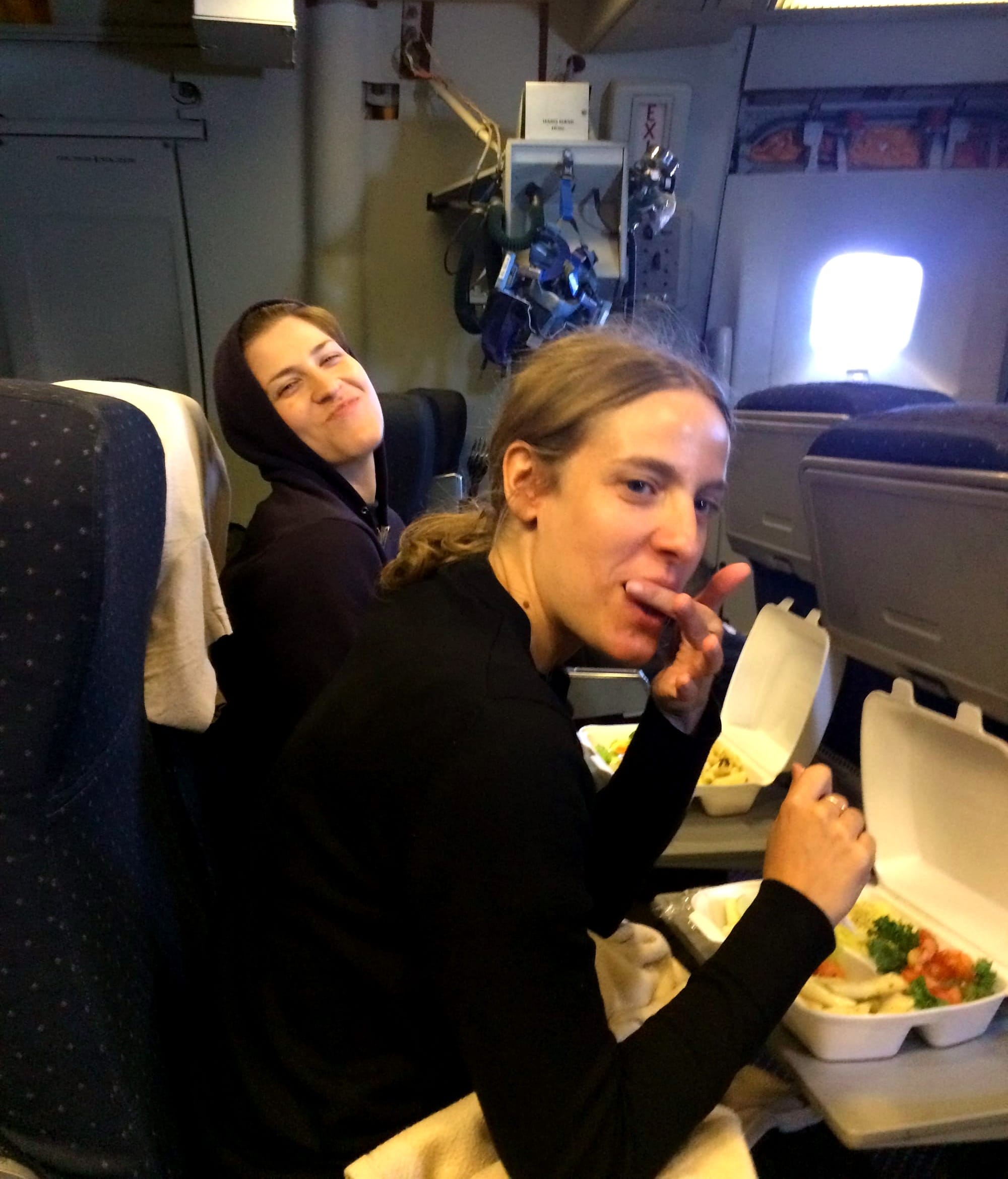
First photo: (From left) Me, the French photog, and a video team outside the KC-10 refueling tanker. Second photo: Me (left) and the photographer, airborne and eating lunch. You know. During war.
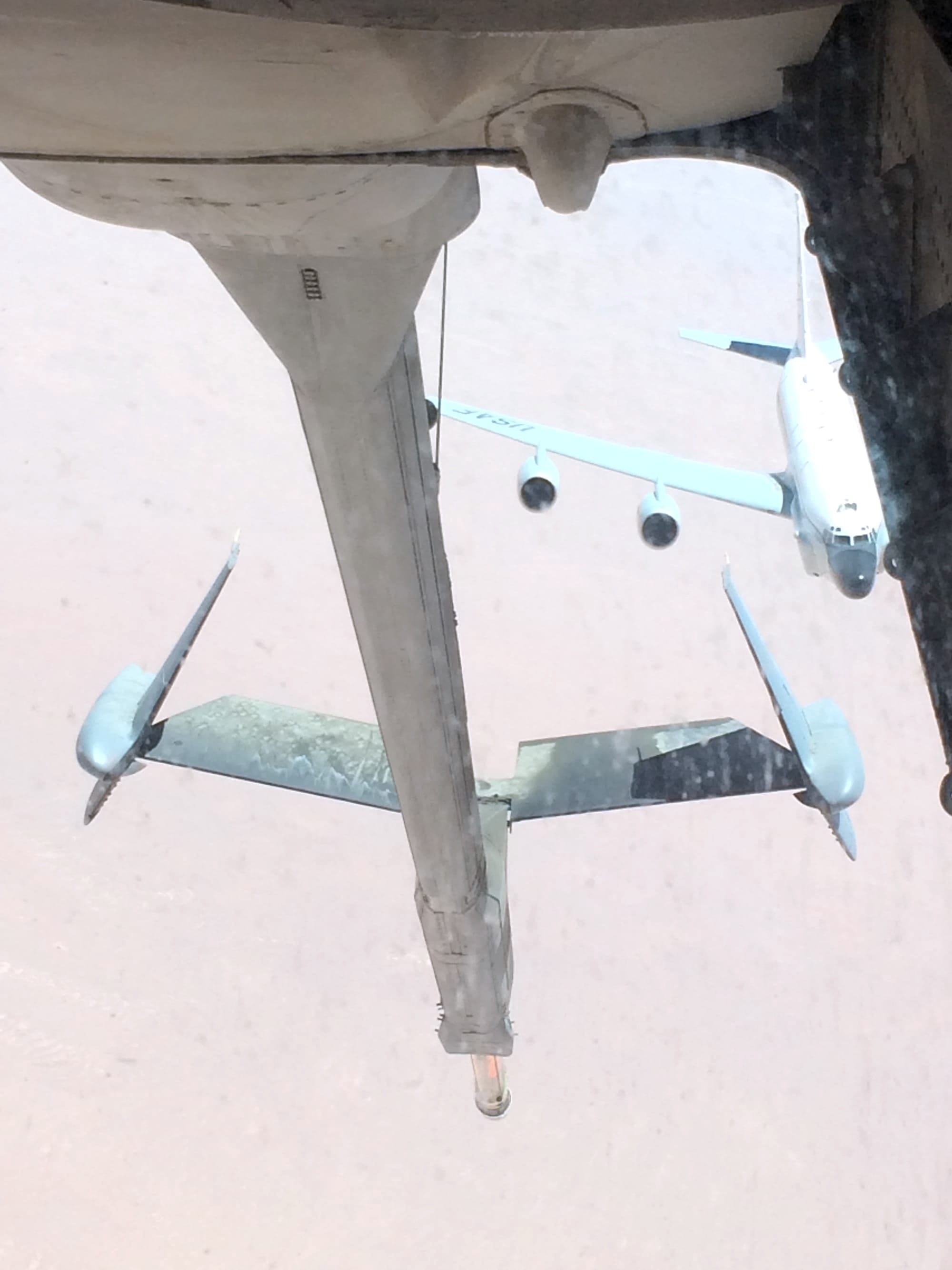
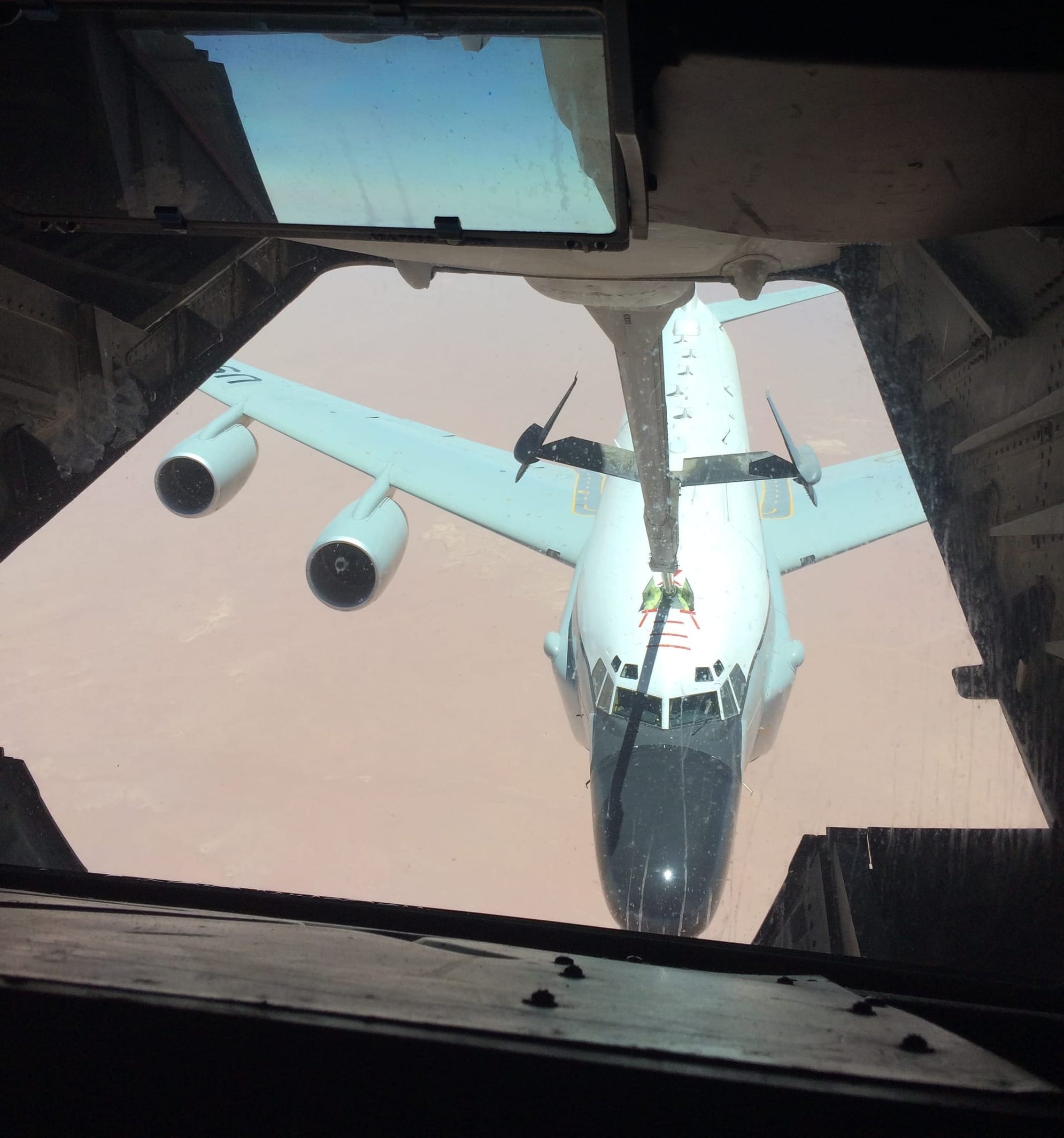
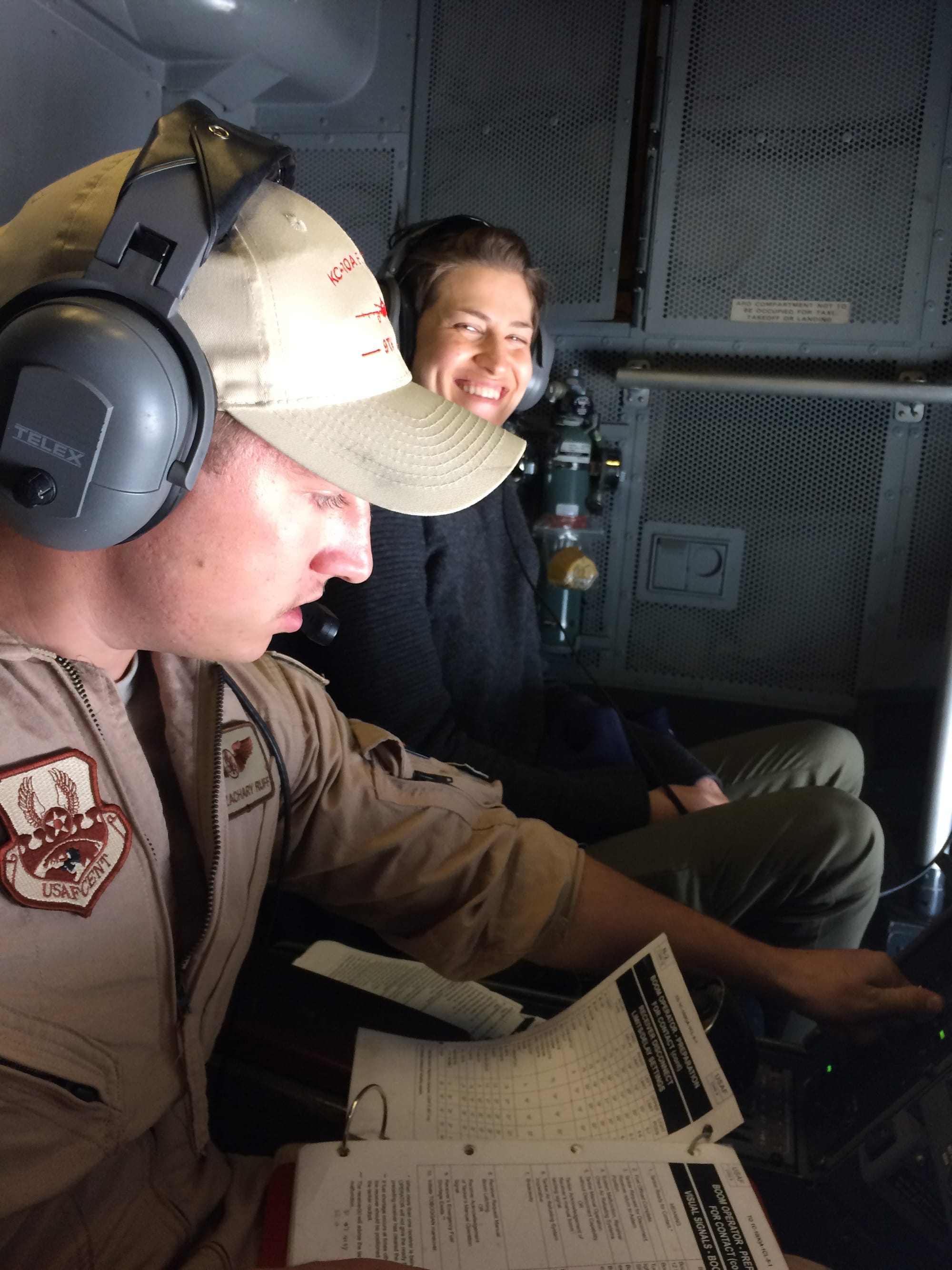
From first photo: The horse-penis refueling connector (you know you see it); Horse-penis, connected; Me, smiling, while an airman dumps fuel into a tool of death.

The photographer (right) and I (left, hooded) sliding off of a massive, bouncy bladder of fuel on Al Dhafra Air Base.
THE WARSHIP PARTY announcement from the Pride organizers had said that “we” were taking over!, as if there’s queer victory in drinking on a murder machine. Wyete, too, said he felt like our trans presence on it right now was a protest. Though I may have felt similarly when I had Sky buy the tickets—or I may have just felt my old habit of being drawn to violence, having been raised in it—I’d since felt only increasingly uneasy.
“We can leave immediately if we don’t like it,” I told Wyete when he picked me up, when the night finally arrived. I’d suppressed my reservations, and gotten dressed, and gotten on board, figuratively, to get on board. Because I was starved for air saturated by queer and trans people. Because I wanted to believe that queer people had chosen a venue for celebrating freedom wisely. And because I really didn’t want to know otherwise.
After I got in his car, Wyete told me that as far as he understood, the ship was going to undock and take us on a tour around the harbor. My spiritual and ethical objections immediately switched to survival ones.
“They’re going to dump us at sea,” I said.
I was kidding. But also, I was not kidding. Wyete entertained my airing of the worst-case scenario lightheartedly. We often did this for each other, two gay, trans abuse survivors joking about how hard it is to exist in a world incessantly antagonizing our existence.
“It’s a trap!” I yelled, exaggeratedly, laughing. As we drove toward the site of our possible imminent deaths, I talked about how we were going to be martyred by all the big newspapers, in stories about the mass-killing of a bunch of homosexuals who were lured onto a great big boat, then drowned.
“For someone who wants to die so much of the time,” I said, “I don’t know why I care. I guess it’s nice that a bunch of us would die together. But apparently, I just don’t want to be killed by the fucking Navy.”
“You don’t want to die on a Navy Gay Death Cruise?” Wyete asked. And we laughed and laughed some more.
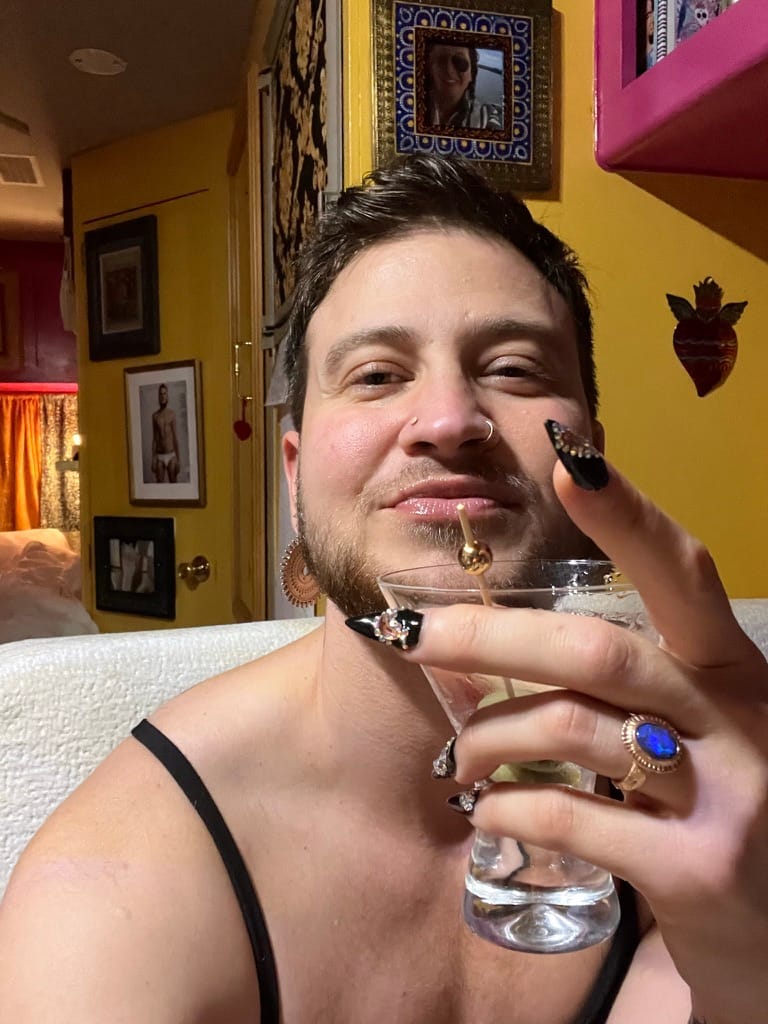
Cheers.
Thank you for being a valued reader of TheFaggot-Witch Whenever.
I’m very grateful to be valued in the form of tips. 🤍 💸When I was at Al Dhafra, I asked one of the female airmen (yep, that’s what they were called), whose job involved arming planes with bombs, if she ever thought about the people they killed. “Not really as much as you would think,” she said. “We don’t actually see, except on the news, what happens with everything. I’ve never really thought about that part of the job.” At the time, the military’s own estimate—which was naturally lower than other observers’—was that nearly 500 civilians had been unintentionally killed in the mission’s airstrikes so far.
“I’ve never heard anything like that,” the female airman said. I had gotten the statistic from an easily googleable report. When I presented it to the senior intel officer on base, a captain who was active in choosing airstrike targets, she hadn’t heard of it, either.
In the weeks leading up to the party on the warship, I didn’t look up what war or wars it had participated in, though I knew the information was readily available online. I chose not to ask myself why I was avoiding it. To overcome my reservations about getting on board—and to deny my feelings about the fact that my own queer community had chosen a venue that felt not just anti-trans, but anti-human—I gave myself plausible deniability, and kept myself in the dark.
Maybe it was used to kill Nazis, I told myself about the ship. Maybe I could feel better if I believed it had least killed Nazis. I chose, also, not to think about how many Nazis were conscripted German teenagers.
WHEN WE ARRIVED, Wyete and Sky and I, at the wide, waterfront promenade next to the warship’s mooring, the weather was magnificent. We stopped to take some pictures together, the setting sun on our sweet, smiling trans faces.
We walked up the long gangway to the ship, and stepped on. We were early, among the first; soon, other queers got on, too. We got a drink, and a D.J. started playing disco. Eventually, more queers got on and got drinks, and it was just, like, a party. On a warship.
The U.S.S. Turner Joy, I immediately saw on framed printouts, was deployed in Vietnam. I didn’t read any more specific information while I was on it, though it was posted all over the place. But I’ve since looked up the ship, which is most famous for being the reason the United States escalated the conflict.
In short: It’s not a Vietnam warship. It’s the warship.
On August 4, 1964, the Turner Joy thought it was being attacked by Vietnam People’s Navy torpedo boats. It’s fairly accepted now—and was suspected in the immediate aftermath then—that it was not, actually, being attacked. The crew, then in the Gulf of Tonkin, appears to have been misunderstanding radar. It also had interpreted, earlier, from radio intelligence that an attack might be impending, intelligence that was passed on to President Johnson, who resolved to launch massive retaliation even before the Turner Joy thought it actually was under attack.
Which it probably never was.
Some of this is according to a 1985 LA Times article by Robert Scheer that reconstructed the events from declassified documents. Let me present you with two of the most depressing paragraphs about the role of a probably-not-real attack in the Vietnam war:
Johnson—in the midst of an election campaign—insisted that decisive action be taken soon enough for him to announce it on television that night, even as his staff frantically tried to determine whether an attack had indeed occurred.
In order to meet that deadline, Johnson would overrule the commander in chief of the Pacific Fleet and announce the bombing of North Vietnam before some of the U.S. pilots had even arrived over their target.
Two nights prior to the “attack,” there had been more-credible reports that Vietnamese torpedo boats had approached another U.S. ship. The boats may have been responding to recent naval attacks on North Vietnam supported by the U.S. The American ship fired first, and there were no U.S. casualties. But along with the supposed assault on the Turner Joy, the incidents were enough for Congress to quickly pass the Gulf of Tonkin Resolution, which allowed Johnson to wage war against North Vietnam as vastly and expensively as he wanted, without further Congressional approval.
Before that, America had sent thousands of advisors to Vietnam. After that, it sent millions of combatants.
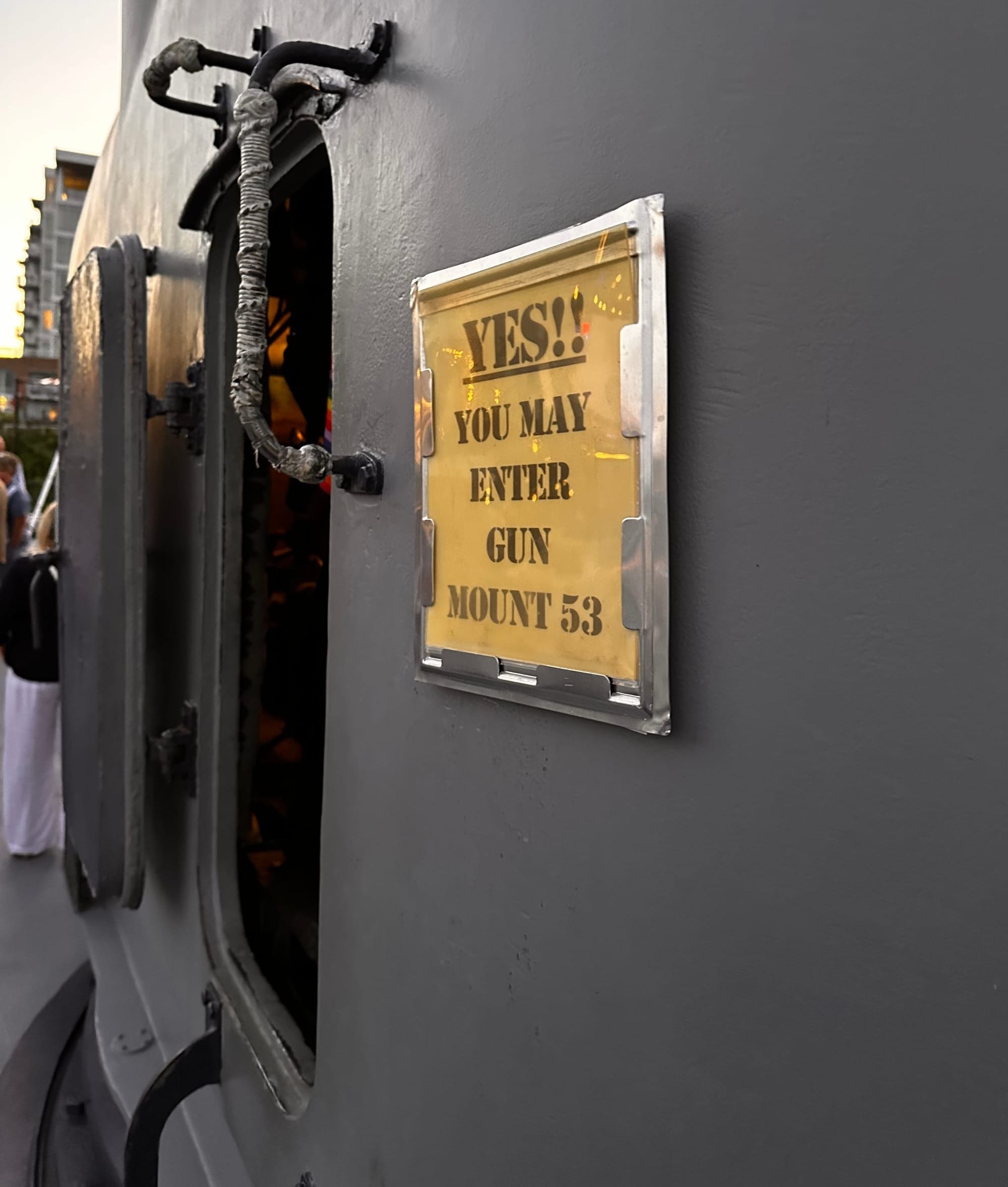
“Is it a ‘fuck you’?” to U.S. military ethos and aggression, Seth wondered, when I told him, two nights after the party, how we queers had crowded on the Turner Joy’s deck, cocktails in hands, cheering for drag queens performing behind a massive gun. Or, the two of us debated, was there no way that it was appropriate to hold celebrations on war machines, even for oppressed minorities exercising their hard-fought right to express themselves freely?
Or did our collective queer oppression just make celebrating on an instrument used to murderously enforce Cold War masculinity and imperial oppression more fucked up?
“I wouldn’t go to a rave at a concentration camp,” I told Seth. I still hadn’t yet allowed myself to look up the party venue I had gone to, which had been used to justify the killing of up to four million human beings.
I DIDN’T NEED to know this Naval destroyer’s specifics to know that I shouldn’t be on it. Not unless it was to pay respect to the dead.
While I was on board, though, I leaned into a good time. It’s out of frame, but in the photo of me on deck (top), there’s a massive gun mounted just behind and above me. I posed fabulously, making the best of the situation, a long-honed skill of being gay, of being trans, of surviving discrimination and abuse. But it still had its limits. As we drank our second $25 drink, I told Sky that I was going to find out if any of our funds were going to the military. He nodded, figuring I’d call someone later.
“Oh—right now?” he asked as I strutted off to investigate.
Eventually, I found the president of the local Pride organization, an older, cis-white-presenting guy. I asked him loudly over the music—we stood near the speakers of the D.J., who was set up under a disco ball someone had hung—if he’d arranged the venue.
He confirmed that he had.
Before I’d located him, one of the people working the event, whom I’d first approached in my quest, said that they knew the ship was rentable, but thought it might have been donated for that night.
When I asked the president if that was true, he confirmed that it was.
After a long, vigorous career, the Turner Joy was donated to a nonprofit. I didn’t know that when I was talking to the Pride president—and he didn’t mention it—but I wouldn’t want any of my money going to a historic society that celebrates a killing machine, either. (“Want an unusual place to have your next meeting? How about one with guns? Team-building in the strong navy tradition! Rent meeting space on the historic USS TURNER JOY!”) “Oh, good,” I said to the president, relieved to hear that we queers had gotten the space for free. “That makes me feel a little bit better about being here, at least.”
In response, he sassed me. “This ship was decommissioned before you were even born,” he said, rolling his eyes.
Fact-check: No. It wasn’t.
And that is not remotely the point.








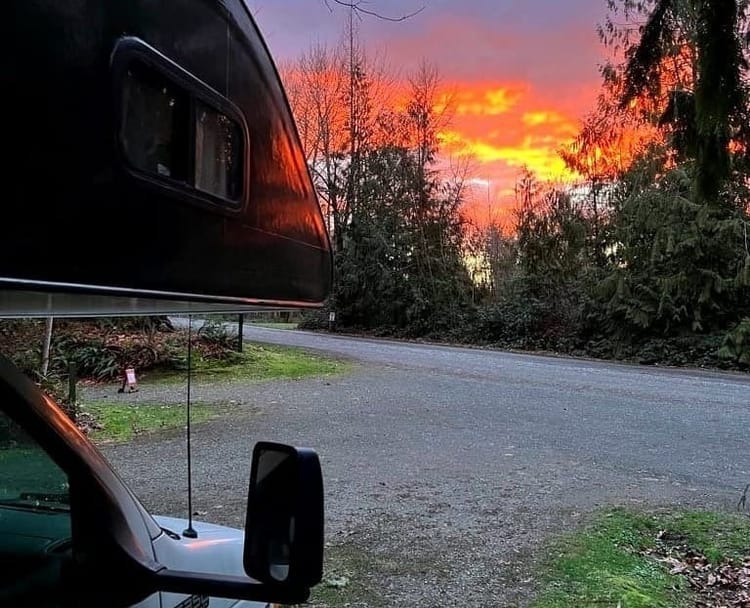
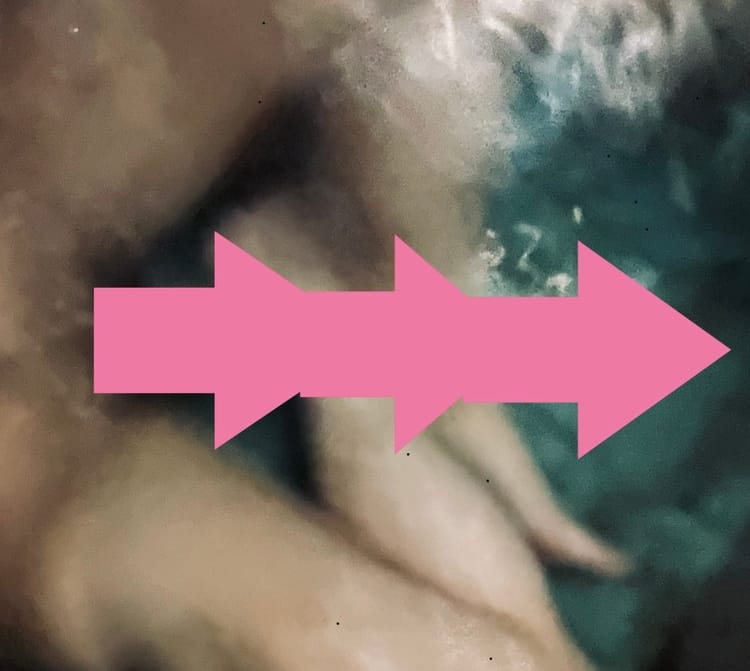
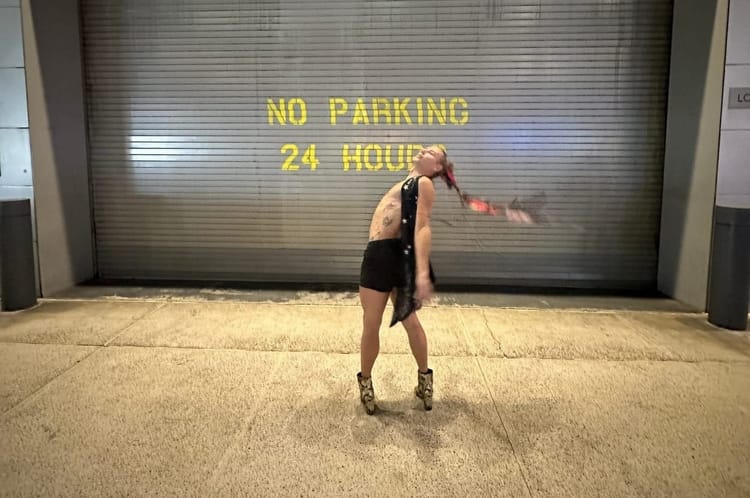
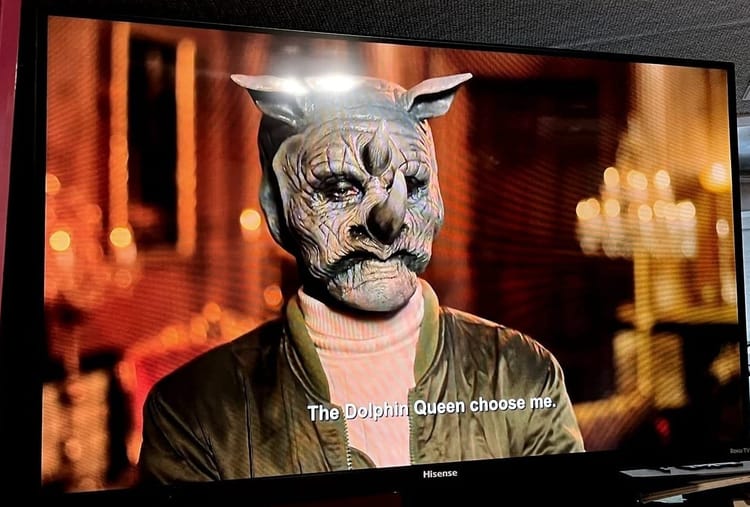
Member discussion